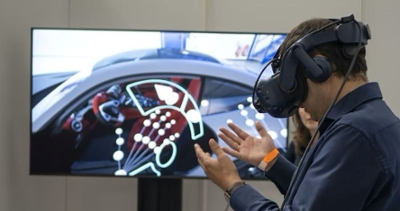Career Paths
Main Content

There are no limits to who can utilize the technology available at the Digital Humanities Lab. Let’s dive deeper into simulations. As stated on the home page, simulators can provide users with an immersive and realistic experience that can be used for entertainment, education, or training purposes. People can experience simulators in many ways. Some may opt for the entertainment value, while others may use them for educational or training purposes. Each simulator is designed to provide an accurate representation of the real-world activity it is based on.
Example Career Paths:
- Software designers - Video game developers - Industrial engineers - Flight instructors - Mechanics - Pilots - Teachers - Trainers - Architects - Designers - Military personnel - Real estate agents
Choosing the Digitally Expressive Route:
AI art projects can help students develop creative problem-solving skills, as they are often required to come up with creative solutions to technical challenges. Creative writing projects can help students develop critical thinking and communication skills, as they learn to craft stories and effectively communicate their ideas. Digital projects can help students develop coding skills, as they learn to create websites, apps, and other interactive projects. In addition, engaging in creative projects can help foster a student’s imagination, creativity, and motivation. The Digital Humanities Lab takes creative thoughts to new heights.



